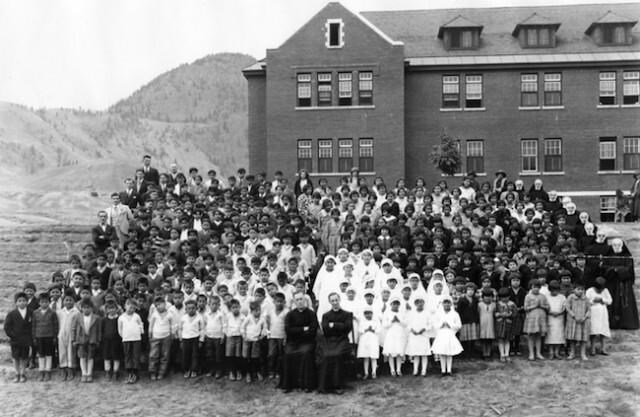This is manifestly not so as can easily be confirmed with a little research, the ‘Duplessis Orphans’ of Quebec for example. Thousands of orphans, as well as children from unwed mothers and other ‘undesirables’ were put into institutions, then judged ‘mentally ill’ through bogus psychiatric assessments, so the Duplessis government of the day could collect more support funding from the federal government.
In addition, many were subjected to medical trials and on occasion, quietly buried, with no one there to question the circumstances. That is only one, and a particularly crass, example of institutional abuse. No doubt similar disregard for the welfare of socially disadvantaged children existed throughout the land and is now largely forgotten, except by those still alive whose childhood experience it was.
This was, however, not something unique to Canada: I came across an investigation that took place some years ago in my native Switzerland about past abuses in institutions housing such children.
I learned, among other things, also about the then forced separation of Roma children (then called the equivalent of ‘gypsies’ ) from their parents and families to ‘drive out the gypsy ‘ and mould them into the ‘mainstream in such institutions.
Pages and pages are filled with testimony of by now elderly survivors of their plight as orphans, as abandoned children, as those born to unwed mothers or otherwise considered of an ‘undesirable social strata’, spending their entire childhood and youth in such places, condemned to endure whatever was meted out to them and to be constantly reminded ‘that they amount to nothing, and that nothing good will ever come from them’. And yes, neglect and suspicious deaths too.
The unmarked Kamloops graves are also silent witnesses to the many others, Indigenous or otherwise, which will never be known.
If this was possible in countries like Switzerland and Canada, it was possible everywhere and illustrates just how systemic and widespread such administrative and institutional abuse of children once was.
This does not in any way diminish the plight of Indigenous children experienced in Canada’s Residential Schools, nor the terrible loss to their parents and families, not to mention the attempt at erasure of their culture. They are likely the ones to understand best the suffering of those others because suffering knows neither race nor colour.
This contribution then is only an attempt to broaden the discussion and to acknowledge that the Indian Residential School System was not conceived in isolation. It happened in a world not just of colonialism, but of blind belief in certainty of cause, and of the rights of authority, which also allowed the routine caning, bullying and all sorts of humiliations meted out even in ‘mainstream’ classrooms and elsewhere.
Excesses at the expense of the defenceless, especially children, were an integral part of that, and Western literature in any language is rich in its documentation. Let’s also reflect here that this past unfortunately still exists as the present in many parts of our world.
It is a sordid story and easy to judge from the vantage point of our present. It would, however, be a mistake if it were leading us contemporaries to overestimate our own ability for clear-sightedness on everything now — past and present. It helps to remember that all this also took place during a period of monumental progress and was supported by corresponding ideas and policies to improve human society according to the standards of the day. Some produced the disastrous results we are now, in hindsight, only all too aware of.
Let us, therefore, be wary of the accepted certainties of today and not become guilty of what writer C.S Lewis called ‘chronological snobbery’ when reminiscing about past and present, and in turn, be judged by future generations for our present blindness and shortcomings.
Wolfgang Wittenburg
Squamish




